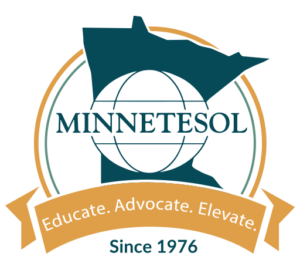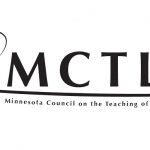MinneTESOL Conference 2012
CALL FOR PROPOSALS INSTRUCTIONS
Minnesota: Land of Diverse Voices
Friday evening, November 2 & Saturday, November 3
University Hotel Minneapolis (Same location as our 2011 Conference)
Minneapolis, Minnesota
Minnesota Teachers of English to Speakers of Other Languages (MinneTESOL) is seeking proposals for breakout sessions on Saturday, November 3. Professionals involved with English language learners in any context may submit presentation proposals.
The theme for this year’s conference reflects the variety and complexity of the English language in Minnesota. Prescriptive and Descriptive views affect the teaching and use of English on both a global and local level. How do we address this variety and complexity in the classroom? How is this addressed by Educational policies and by the English Language Learners themselves?
On Saturday morning, November 3, we are pleased to have keynote speaker Walt Wolfram giving the keynote address about Introducing Sociolinguistic Variation in the classroom.
The MinneTESOL conference committee encourages proposals related to all aspects of English language teaching best practices for instruction and administration, including but not limited to classroom practices, assessment, materials development, use of educational technology, second language acquisition, educational policy, and current research. Both experienced and new presenters are encouraged to submit proposals, and elementary, middle school, and teacher education submissions are particularly encouraged. Co-presenting with a colleague or choosing a 20-minute presentation may be an appealing option for those who are new to presenting at a conference.
Example proposal submissions and helpful guidelines for submitting are posted on the MinneTESOL website at www.minnetesol.org.
The deadline for receipt of proposals is September 1, 2012.
Types of Presentations
Demonstration/Presentation (20 or 50 minutes): A demonstration describes or shows audience members how to do something, e.g. a technique for teaching or testing language which affects development of one or more language skills. A presentation is designed for sharing a variety of aspects of teaching, e.g. a successful teaching strategy, activities, curriculum ideas and materials.
? The program summary should provide a brief description of what you will demonstrate or present and how it will be shown (video demonstration, audience participation, etc.)
Panel (50 minutes): A panel explores a specific issue from the differing points of view expressed by participants.
? The program summary should include a list of presenters and a statement of the issue to be discussed, a summary of the different viewpoints and/or types of information to be included.
Paper (20 minutes): A paper tells about something that you are doing in relation to theory or practice. Often this type of information is presented using audio-visual aids and is accompanied by handouts. A paper can be a research paper, description of an action research project or capstone or thesis work.
? The program summary should be a condensed version of the content (central idea, argument or purpose, procedures, conclusions, specific applications or implications)
Workshop (50 minutes): A workshop provides participants with a “hands on” experience in developing methods or materials, analyzing research data, or solving a specific research/teaching problem. In a workshop, there is very little lecturing; rather, the emphasis is on audience involvement.
The program summary should include a description of the goals of the workshop, the theoretical framework or approach, the tasks to be performed by the audience and the materials to be provided.
Poster session (30 minutes): A poster session features teachers sharing lesson plans, classroom projects, or research studies that they have successfully worked on. Presenters must be available for discussion between 12:45 and 1:35. Posters must be free-standing. Presenters will be provided a table, but no A/V equipment or other materials will be provided.
? The program summary should include a description of the goals of the poster, the theoretical framework or approach involved, classroom task if needed, the reaction of students, and the reason you thought it worked successfully.
Submitting a Proposal
The deadline for receipt of proposals is September 1, 2012
All proposals need to be submitted online. Please click on this link for the form:
https://minnetesol.wufoo.com/forms/minnetesol-2012-conference-call-for-proposals/
We encourage you to provide as much detail as possible in the description of your session to help the review committee in the process of selecting proposals.
The contact person for each proposal will receive immediate email confirmation of the receipt of proposal. If you do not receive a confirmation email, please re-submit or email Proposal Committee chair Debbie Hadas (deborah.hadas@district196.org) or one of the conference chairs listed below. Notification of proposal acceptance will be emailed to the contact person only by early October.
Presenters receive a reduced rate for the conference, but all presenters are required to register.
****************************************
For general questions about the conference, please contact the conference co-chairs:
Katie Subra / subr0054@umn.edu
Kamille Kolar / kola0131@umn.edu


